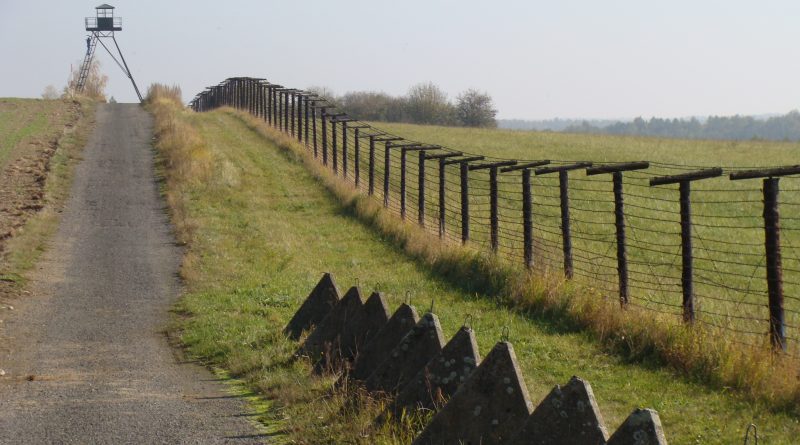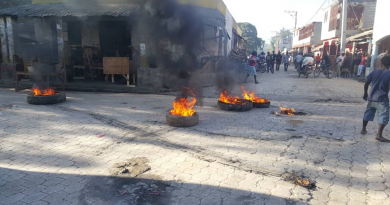Focus on Border Walls: Hungary
Stephanie Miller
Staff Writer
Amidst Europe’s worst refugee crisis since World War II, the Hungarian government drew international attention by erecting a barrier along its southern border with Serbia and Croatia in 2015, reports BBC. Four years later, officials and citizens alike still hold to the belief that the fence is a critical necessity for combating illegal immigration and securing state sovereignty, reports Fox News.
“Since we built a fence, and since the police and army have been there, we basically have no illegal migrants on the territory of the country,” Hungarian Foreign Minister Peter Szijjarto told Fox News. “There are constant attempts to break through, but the infrastructure itself, namely the fence, and police and the army, make it impossible to get in.”
Hungary’s decision to build its wall resulted from its proximity to the migration crisis. As a Central European country, Hungary was a popular destination for tens of thousands of migrants. Civilians took to the streets in protest and demanded a viable solution from Viktor Orban, Hungary’s Prime Minister.
Orban, a populist who Steve Bannon once told The National was “the original Trump,” quickly delivered. The first fence went up in 2015 and the second was fully complete by April 2017, reports Euronews.
Since then, Hungary has seen an 88 percent drop in asylum applications, from 29,432 in 2016 to 3,397 in 2017, and only 280 in the first quarter of 2018 according to the International Organization from Migration.
“Every single migrant poses a public security and terror risk,” the president said at a 2016 news conference in Budapest, reports CBC News. He went on to elaborate that barriers are necessary to protect countries from irregular migration and, more crucially, from criminals and would-be terrorists among the masses. Orban also claimed that the migrants passing through his country at the time were “Muslim invaders” who threatened Hungary and all of Europe’s “Christian identity.”
Prime Minister Orban’s party went on to win a supermajority in the 2018 Hungarian national election, which centered primarily on illegal immigration platforms, reports
In an additional report, The New York Times said that the influx of ‘invasive’ Muslim migrants, many of whom were simply trying to reach the more prosperous countries of northwestern Europe, has all but dried up.
While the native population seems to be happy with the result, both the European Union and the United Nations have chastised Hungary for restricting its asylum and immigration policies. Euronews reports that asylum seekers arriving at the Hungarian border can only do so in two border zones, and a recent law allows the government to detain incoming migrants in shipping containers.
The Hungarian government also faced accusations of food deprivation in its refugee camps in 2017. The Budapest Beacon reports that the camp at Kiskunhalas no longer had access to food or medical services, forcing local residents to step in and provide supplies. To date, Hungarian law still prevents outside individuals from donating supplies to refugee camps.
Fully equipped with alarms, thermal imaging cameras, razor wire, and patrolled by the military, Closed to journalists, only one person can enter and begin the asylum process per day. Once beyond this point, however, refugees and asylum-seekers are not provided with legal advice regarding their rights.
In mid-2018, the Hungarian parliament passed a law that jails activists and lawyers for advising asylum-seekers on their rights, reports Reuters. Besides denying refugees access to basic legal resources this move also “narrows the scope of action by non-governmental organizations, making their workers liable for jail terms for helping migrants to seek asylum when they are not entitled to it.”
Freedom House’s annual Freedom in the World report has categorized Hungary as a free state every year since the latter became a democracy in 1990. However, according to the Washington Post, this year’s report found a “consistent and ominous” pattern of democracy in retreat across the globe and in Hungary specifically. Its new status as “partly free” now ranks it alongside countries like Pakistan, Singapore, Ukraine, and Zimbabwe.
Hungary is now the first EU member state ever designated as only partly free. This downgrade in status is important to the European Union, whose member states are required to retain a certain level of democracy and freedom, argues R. Daniel Kelemen, professor of political science and law and Jean Monnet chair in E.U. politics at Rutgers University.
Hungary’s border wall stands not only as a ward against refugees and asylum-seekers, but as an indication of a growing anti-immigration platform within the European Union, argues Kelemen. As bigger states like Italy, Spain, and France joined Hungary in limiting the movement of migrants within their own borders, the continent has seen a sharp decline in the very democratic values that the EU’s foreign policy platform claims to protect.
On the EU’s response to how its member states are dealing with the migrant crisis, former head of the European Commission’s enlargement department Michael Leigh advised against such rightward swings in policy, reports Politico.
“European leaders should not abandon these values to obtain a short-lived, late-night fix. Rounding up migrants, fleeing war, conflict, persecution, drought or poverty, and putting them behind bars should have no place in a continent that has lived through the tragedies of the 20th century.”



